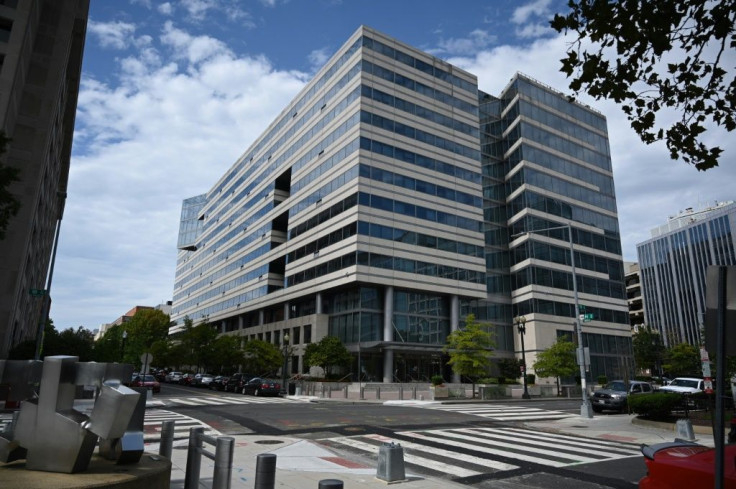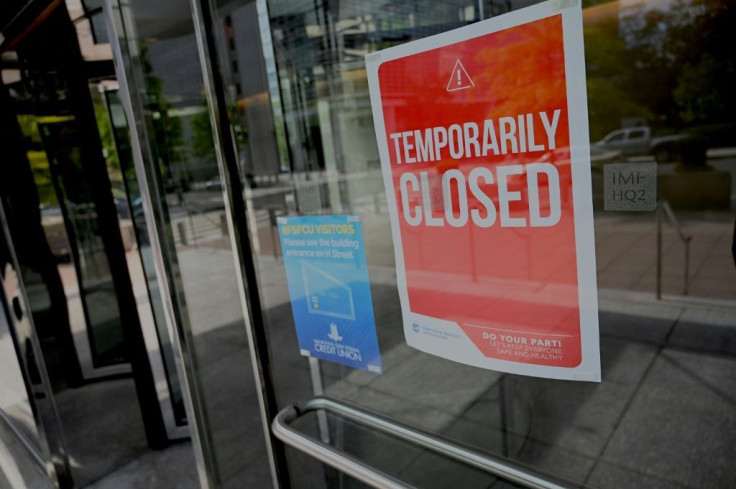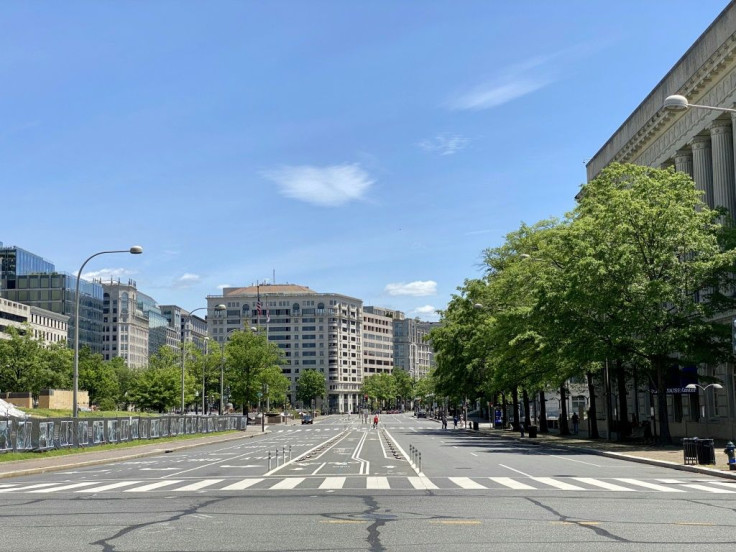Washington, Heart Of US Power, Frozen By Pandemic
Behind the giant bay windows of the World Bank, security guards remain at their posts, but idle. Outside, the sidewalks of Washington DC are largely empty.
The bank is open, ready to host but its twice annual meetings with international financial institutions. But the meetings are all virtual these days.
Next door, at the HQ2 building of the International Monetary Fund (IMF) a sign says "temporarily closed." It has been hanging there for six months.
With just a month to go before the presidential election, Washington, the hub of American politics, is still in the social and economic deep freeze it was plunged into by the Covid-19 outbreak that began six months ago.
The 12,000 people due to take part in upcoming meets at the World Bank and IMF will not stroll the sidewalks of the spruced-up city center, which before the pandemic had been touted as example of the regeneration of US downtowns.

Instead, they will be sitting at home, in front of their laptops.
As well as its political activities, the city had billed itself in the past two decades as a hub for international conventions and conferences.
Before the pandemic, "we were experiencing record attendance and visitation to Washington, not only with congresses and meetings, but of course, also with the leisure market... and the international markets," said Elliott Ferguson, director of Destination DC.
And that activity all stoked the local economy. "We were on pace to do well over 25 million visitors to the city, over 42 large congresses," he said. Now the city is expecting some 11 million visitors.

For sure, some of the trendier districts of the city have bounced back to life. Restaurants have opened up outdoor terraces and rooftop dining and have started to fill up in the late summer, thanks to local clientele.
But in the downtown area, not far from the White House, the fast food restaurants of K Street -- the central artery where busy lobbyists and lawyers used to grab lunch -- have not re-opened and struggle to attract local business.
That is because the thousands of government and institutional workers -- including the 9,000 of the World Bank, excluding its consultants -- are all working from home until the end of the year.
The white-collar workers who filled the offices of the nerve center of US and international politics have overwhelmingly chosen to carry on with remote work.
And they have the backing of Democratic Mayor Muriel Bowser, who has implemented one of the strictest regimes of restrictions in the country to keep the virus death toll down to 629 deaths and more than 12,250 infections.

As a result, by the end of July the economic activity of the city center was just 12 percent of what it had been the year before, with 95 percent of employees working from home, according to Downtown D.C Business Improvement District. Hotel occupancy was at just eight percent in June, down from 74 percent in February.
An employee of the pharmacy chain CVS, just a few yards from the IMF building, said the branch was probably doomed if the big institutions do not open up their doors again soon.
Handing out at best 200 prescriptions per week instead of more than 1,000 before the pandemic, and with its opening hours tailored to those of the neighboring institutions, the employee said the store would be lucky to hang on for six months.
"I'm afraid CVS will have to close this location if they don't come back to work downtown," the worker said, asking to be named.
Despite the gloomy mood, Gregory O'Dell, head of the Walter E. Washington Convention Center, the mainstay of the city's conferences, hopes there will be better days ahead.
The Center, which receives some 1.5 million people each year, reopened two weeks ago, unveiling a variety of sophisticated equipment designed to help ward off the virus.
The convention center in the heart of Washington has been fitted with scanners that take the temperature of visitors.
Interior surfaces are frequently sprayed with disinfectant capable of killing the virus.
And artificial intelligence monitors visitors and registers if they are getting too close to each and ignoring social distancing guidelines.
The cancellation of 93 events this year left the center with steep losses, totally $345.5 million.
"Today, more than ever before, is such an important time for people and communities to come together, and conventions and meetings, sports and entertainment have the power to do that, even virtually," said O'Dell.
And if people start to get a taste for all things virtual??
"I don't think we're getting used to it," said Elliott Ferguson. "I think we are very much so missing out on the opportunity to connect in person."
"It's very difficult to get someone interested in your product, or whatever your prototype is," he said. "We need to touch it, we need to feel it."
© Copyright AFP {{Year}}. All rights reserved.





















